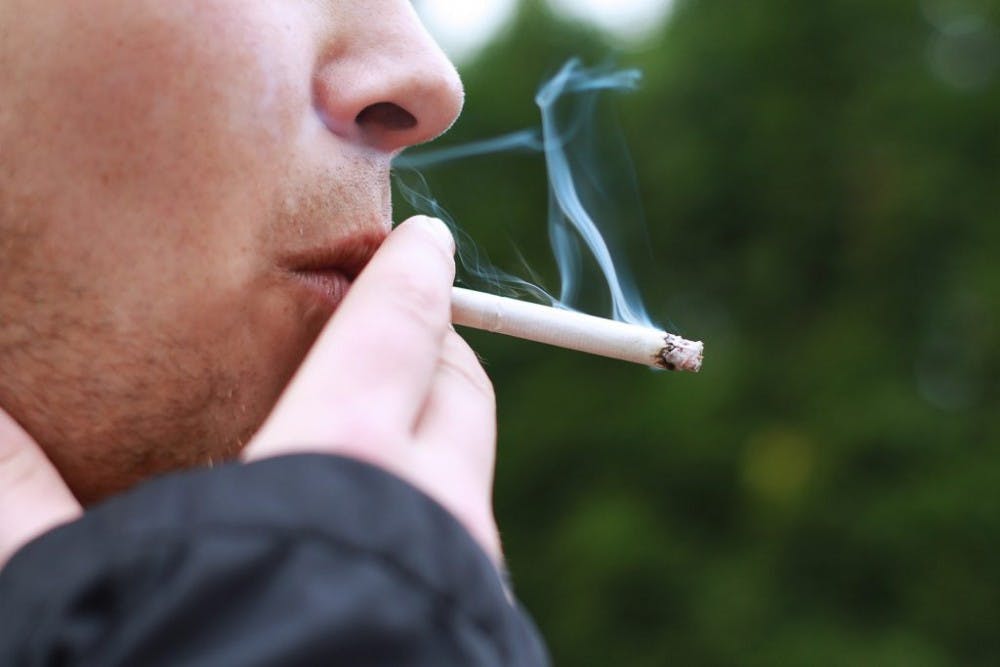The Student Government Association (SGA) held its last weekly meeting of the year on Tuesday to approve nominees for the Student Activities Commission, debate the Smoking Ban Resolution and approve the Ethics Board nominees.
Freshman Class Senator Rushabh Doshi presented the Smoking Ban Resolution, which he worked on with Junior Class Senator Sathvik Namburar. Doshi presented the Resolution in the last two SGA meetings, but it failed to pass both times.
The Resolution aims to make Hopkins a smoke-free campus by August 2018. It also outlines the creation of a smoking helpline, regular smoking cessation counseling programs and the provision of nicotine alternatives. All smoking cessation aids would be provided to students, faculty, workers and their dependents.
Freshman Class President Anthony Boutros hailed the Resolution as important to student health and safety, especially since the Resolution still provided alternative choices for smokers, including one designated smoking area on campus.
“The right to live is the most central of rights,” he said. “Standing up for the overwhelming majority of students, staff, faculty who don’t smoke and saying that you have the right to walk around campus and not have your health at risk everywhere you go.”
Junior Class Senator Kwame Alston had multiple concerns about the Resolution, including how the SGA would fund the promised measures.
“This is a very expensive program, so where is that money coming from?” he said.
Alston also voiced concerns about the statistical sampling that was used to support the Resolution, which was one of the issues mentioned when it failed to pass in the previous meeting.
“You need better stats than this. You cannot say that the data from 2013 is representative of [the] students on this campus or that you represent your students,” he said. “Just you talking to some people in your class isn’t an accepted sample at all.”
Similarly, Sophomore Class Senator Jen Baron mentioned that after she talked to an international student who opposed the smoking ban, she felt that the ban was unfair, especially since current smokers and nonsmokers have not come to SGA meetings to voice their opinions.
“For a lot of students, it’s part of their culture, where they grow up or where they live. Smoking is just a social thing that people do,” she said. “I feel like we’re targeting a lot of students. As SGA we’re supposed to represent our people and right now I feel like we’re not by forcing this thing through.”
Sophomore Class Senator Akshay Bhamidipati countered Baron’s opinion by citing the legality of marijuana in different jurisdictions in the United States.
“I understand that it is a cultural thing to smoke in certain countries, but it’s a conflict,” he said. “Suppose weed is legal in Washington. Is it a cultural thing to not smoke weed in Maryland? It doesn’t matter.”
Although Doshi had hoped that SGA would be able to pass the Resolution quickly in order to give more time for the administration to be able to implement a smoking ban, the bill failed to pass by a vote of 16 to 9 and will be pushed to next semester’s SGA.
Doshi said that he had been working on the Resolution for the past four months, but Alston disagreed about whether that meant that it should pass.
“Just because you worked on the bill for four months and you presented it for three weeks doesn’t mean that it’s not rushed,” he said.
Discussion on the Smoking Ban Resolution will continue during the SGA retreat in the fall 2017 semester.





